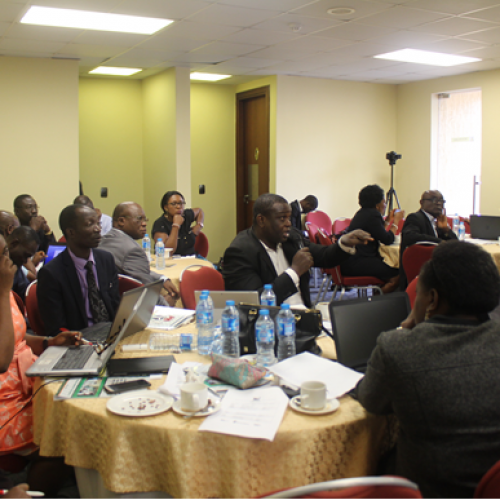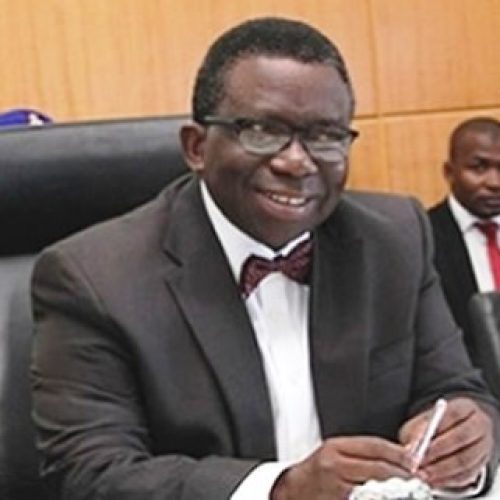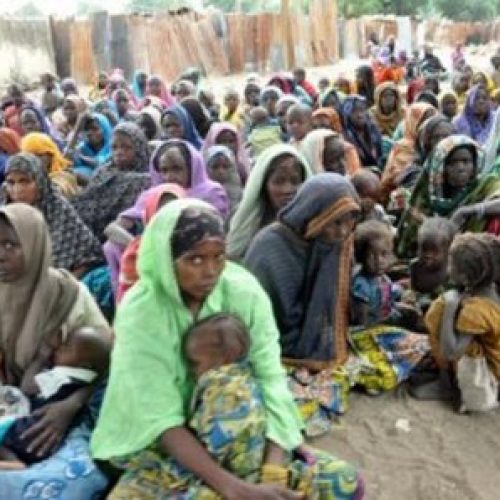Voluntary health insurance makes attainment of UCH difficult in Nigeria – Ag NHIS Executive Secretary
Says scheme won’t relent in sanctioning corrupt stakeholders
Abuja – Failure to make health insurance compulsory for people of Nigeria will make attainment of Universal Health Coverage difficult for the country, the Acting Executive Secretary, National Health Insurance Scheme, NHIS, Mallam Attahiru Ibrahim, revealed on Tuesday.
Ibrahim said making the scheme optional when the NHIS Act was being conceived was a mistake. He said the scheme consequently chose to decentralize its operations, thus allowing states in the country to have their own health insurance agency, and by so doing be at liberty to make health insurance compulsory.
Speaking at a familiarization meeting with health correspondents and editors, under the umbrella of Association of Nigeria Health Journalists (ANHEJ) in Abuja, the ES, as holders of his office are fondly called, noted that no country in the world, where health insurance is functional, makes the programme optional as it is with the current NHIS Act.
“There are areas that really need amendment. The current Act establishing the scheme makes health insurance optional. And, anywhere in the world where health insurance is in practice, it is compulsory. For us to achieve universal health coverage, it must be made compulsory.
“That is why we are decentralizing the operations of the National Health Insurance Scheme to states. We are encouraging the states to come up with agency of their own and also not make the mistake that was made in our own Act by making it optional. We are urging the states to make it compulsory,” he said.
He restated the scheme’s commitment to ensuring the organization discharges its regulatory function effectively by making sure enrollees enjoy the scheme, even as he disclosed that only six million of people in the country are enrolled on the NHIS.
Fielding questions on alleged corruption in the agency, especially the probe of his predecessor, the suspended ES, Prof. Usman Yusuf, over alleged corrupt practices, Ibrahim said the institution is not a hub of corruption, and would ensure any stakeholder involved in corrupt practices within and outside the agency is punished.
He had said earlier in his remarks: “We want to assure the media and Nigerians that the scheme, as an institution, welcomes all attempts to check the excesses of errant stakeholders, towards making the industry safer and stronger. In the process, the Scheme also strongly support the rule of law, whereby anyone found wanting in the course of the operations of the scheme, whether on the inside or outside, should be handed over to the agencies of government with the appropriate mandate to make such people accountable, as in all decent societies.
“However, it must be urgently stressed that the attempt to smear the corporate image of the scheme as a hub of corruption is both untrue and unacceptable. Rather, it is those who have been abusing their privileges around the scheme that should be identified and made to face the consequences of their actions in full measure.
“It is also important to put it on record that NHIS has not done badly in the implementation of its mandate, twelve (12) years after its official launch.
“For instance, the scheme, through the diligence and integrity of its staff, grew the pool of funds from N3billion at inception to what it is today. Let us remind all that health insurance is a contributory arrangement, whereby only contributors are expected to benefit from the prescribed services.
“In this context, we have achieved a near 100% coverage of all contributors in the formal sector, made up of employees of the Federal Government, whose contributions make the bulk of our pool of funds. We are also currently covering other Nigerians on different other platforms, such as: TISHIP, CBSHIP, MCH and MDGs.
“To be able to extend coverage to other less privileged citizens often called ‘vulnerable’, the scheme looks up to government to provide funds for their coverage, through special funding mechanisms, as they are clearly known to lack the capacity to pay for themselves.
“This is because there can be no free coverage in an insurance arrangement. Only contributors can benefit. We are happy to report that NHIS is rapidly emerging from the distractions of the last one year, and will be giving a lot of energy to its activities as we go forward. These areas include: SSHIP, VCSHIP, Accreditation of HCFs, CBSHIP, Mop-up Registration, Quality Assurance. The Scheme reassures Nigerians that it will continue in its tradition of a socially,” he said.
About author
You might also like
Task Shifting, Task Sharing: New route towards MDGs achievement?
● All eyes on Lagos on plans to domesticate policy Nigeria is reputed to have one of the largest stocks of human resources for health (HRH) in Africa. Unfortunately, the
Lassa fever death tool hits 31 in 15 states
FG convenes Emergency National Council on Health Meeting ABUJA – The Federal Government on Monday, February 5, said Lassa fever virus had killed 31 people in the country this year.
FG spends N4b on humanitarian projects in northeast
UNICEF decries increasing use of children as “human bombs” by Boko Haram ABUJA – The Federal Government said it had spent over N4 billion 0n the humanitarian crisis in the






0 Comments
No Comments Yet!
You can be first to comment this post!